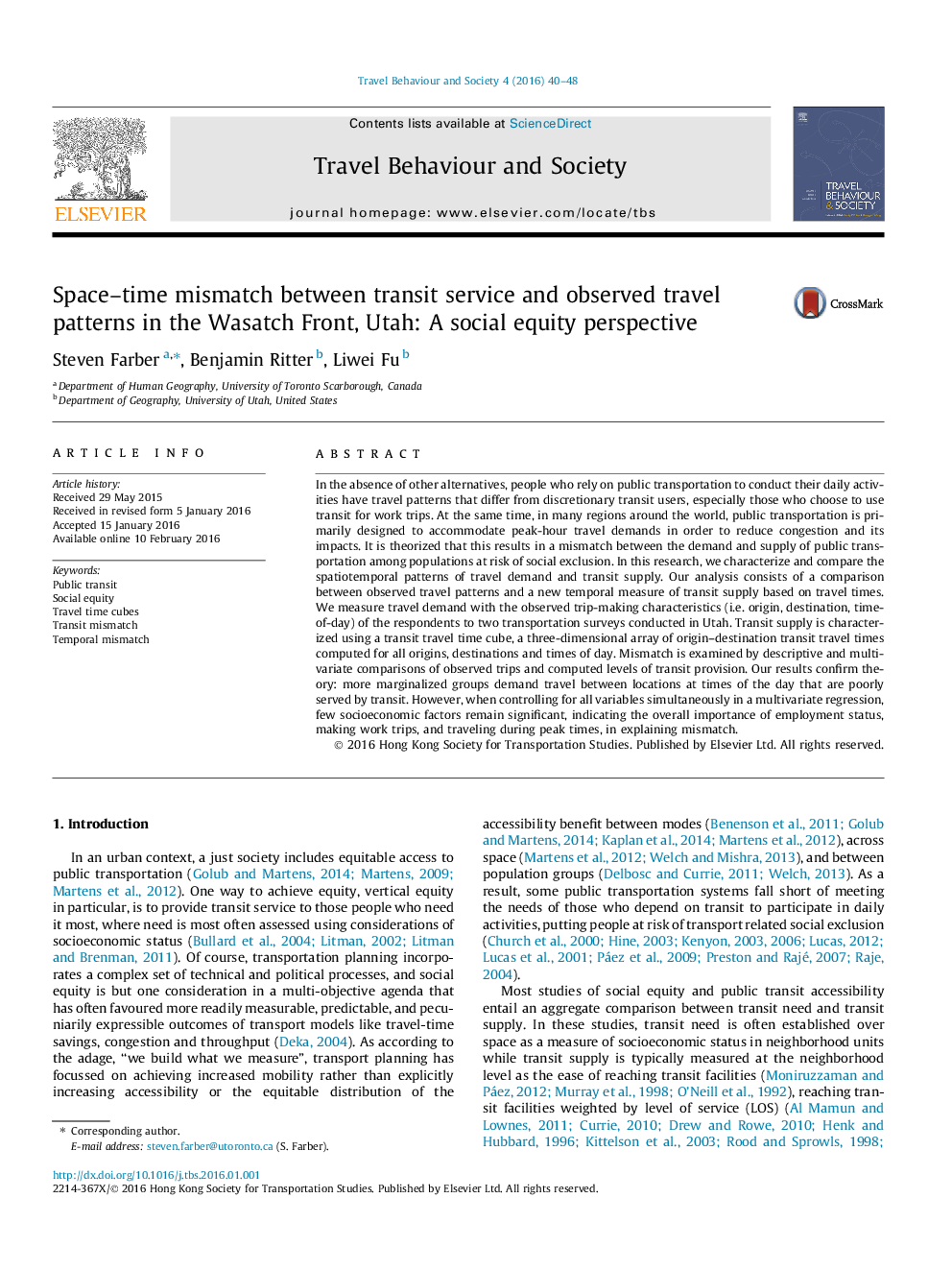| کد مقاله | کد نشریه | سال انتشار | مقاله انگلیسی | نسخه تمام متن |
|---|---|---|---|---|
| 141296 | 162850 | 2016 | 9 صفحه PDF | دانلود رایگان |
In the absence of other alternatives, people who rely on public transportation to conduct their daily activities have travel patterns that differ from discretionary transit users, especially those who choose to use transit for work trips. At the same time, in many regions around the world, public transportation is primarily designed to accommodate peak-hour travel demands in order to reduce congestion and its impacts. It is theorized that this results in a mismatch between the demand and supply of public transportation among populations at risk of social exclusion. In this research, we characterize and compare the spatiotemporal patterns of travel demand and transit supply. Our analysis consists of a comparison between observed travel patterns and a new temporal measure of transit supply based on travel times. We measure travel demand with the observed trip-making characteristics (i.e. origin, destination, time-of-day) of the respondents to two transportation surveys conducted in Utah. Transit supply is characterized using a transit travel time cube, a three-dimensional array of origin–destination transit travel times computed for all origins, destinations and times of day. Mismatch is examined by descriptive and multivariate comparisons of observed trips and computed levels of transit provision. Our results confirm theory: more marginalized groups demand travel between locations at times of the day that are poorly served by transit. However, when controlling for all variables simultaneously in a multivariate regression, few socioeconomic factors remain significant, indicating the overall importance of employment status, making work trips, and traveling during peak times, in explaining mismatch.
Journal: Travel Behaviour and Society - Volume 4, May 2016, Pages 40–48
